The fifth convening of the Texas Accountable Communities for Health Initiative was a two-day event that kicked off on December 4th in Austin, Texas. The winter convening had three primary themes that were woven through the various sessions: financial sustainability, collaboration, and celebration. The convening brought together members from six TACHI sites, managed care organizations (MCOs), funders, and experts to share experiences, and knowledge, and celebrate all the group has accomplished.
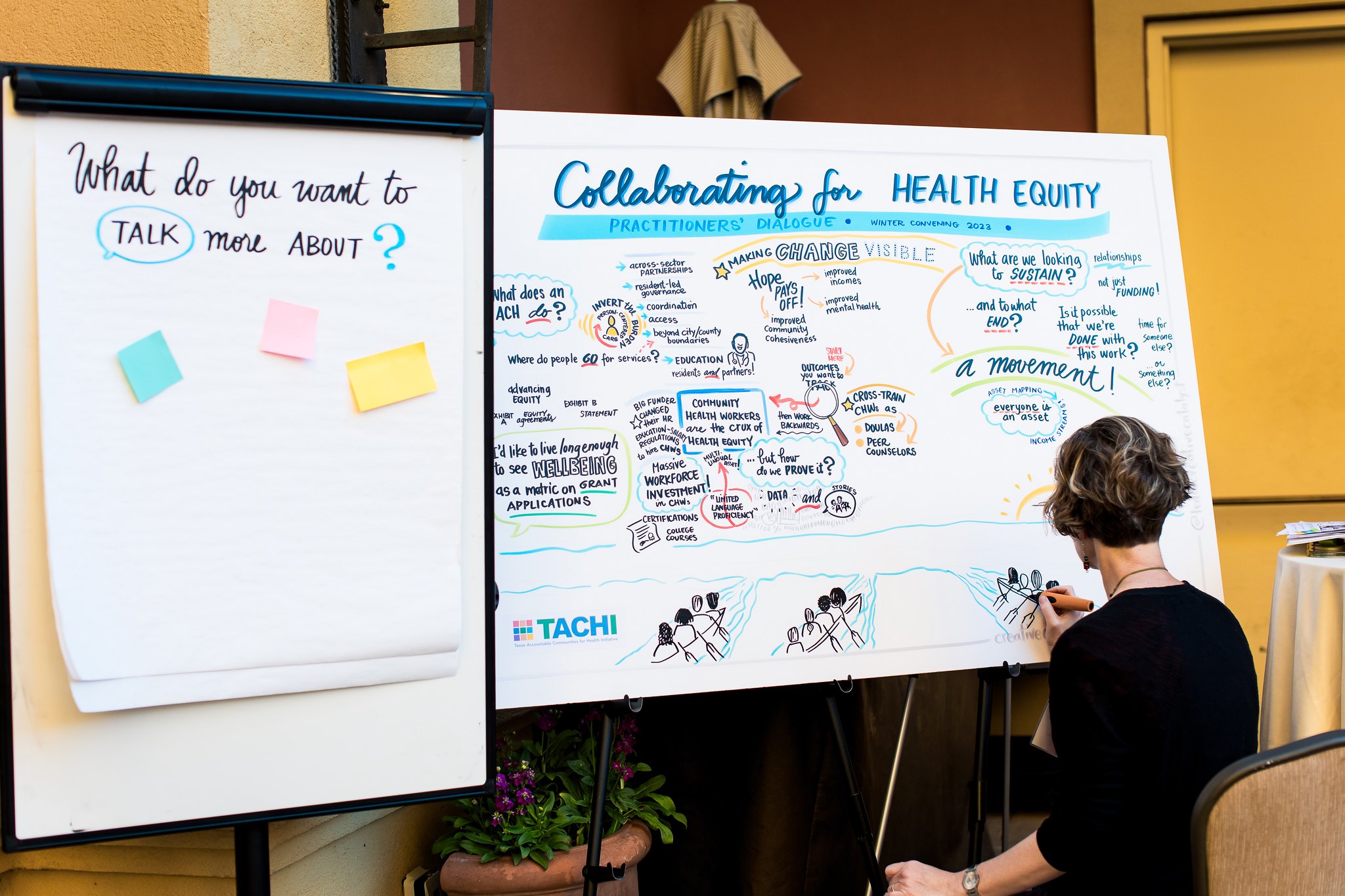
Practicalities of Funding Collaborations + Site Discussions
Sharon Zachry, MA, CEO Alliance of Community Assistance Ministries shared practical experience and how transparency, communication, and effective documentation contribute to robust case statements for funding.
Since 2009, Alliance of Community Assistance Ministries (ACAM) is a coalition of organizations that has worked to expand and coordinate sustainable collaborations. The key takeaways for planning and implementing sustainable collaboration included:
- There needs to be a coordinating agency: collaboratives need infrastructure, and someone must be assigned to that role. The coordinating agency clearly defines and communicates performance expectations and deliverables, services to be provided, and cost of these services.
- Collaboration requires infrastructure with clear roles and responsibility along with transparency.
- Coordination requires collective agreement on both the concept and the practical implementation.
- Sustainability is the collective responsibility of all partners. Pay attention to who is in the room, clearly define roles, and know where duties sit. Be aware of power dynamics.
Sharon shared practical strategies for ensuring long-term success and sustainability:
- Budget for real costs of collaboration
- Keep an updated roster of staff contacts
- Make sure all contracts include clear, specific expectations for reporting, meeting, evaluation, access to data, program, and expenditure targets and deadlines
- Make a contingency plan in case one or more partners doesn’t meet projected targets.
- Under-promise and over-deliver
- If the coordinating agent is providing direct services, it should have separate budget and logic model for coordinating services for direct services
- Maintain a culture of collaboration and equity
- Don’t assume that contractual obligations have been communicated to all staff
- Involve partners in fundraising
- Meet with funders regularly to provide updates
- Hold team meetings on a consistent basis
- Well-defined consolidated reporting demonstrates compelling outputs and outcomes
- Accurate and robust financial reports, when consolidated provide evidence of cost effectiveness
The bottom line: effective collaboration impacts sustainability.
Practitioners’ Dialogue
Dynamic leaders of successful multi-sector partnerships shared insights and key learnings, first-hand experiences, and what supporting community-based health initiatives looked like in their area. Leaders included moderator Katherine Bailey, San Diego Wellness Collaborative; Liz Baxter, MPH, CEO, North Sound ACH, Aisha Williams, Senior Innovation Manager, Atlanta Regional Collaborative for Health Improvement, and Josie Williams, Senior Research Associate, Georgia Health Policy Center, Georgia State University.
The practitioners shared some of their key learnings in creating a sustainable program:
- “Make change visible.” When a community has felt hopeless and then are given hope, it elevates the work they are doing.
- It is critical to understand the community and create alignment on needs. Asking, “what is really causing the disparity?” is critical in addressing access limitations.
- Create formal asset mapping to find income streams from those assets.
- The backbone agency should take the responsibility to make sure all the right people are at the table and integrate all components, even unlikely partners, to create disruption.
- Building credibility is foundational to building valuable relationships, and it’s important to consider historical harms that could have caused a lack of trust in a system.
- All partners have an important role, and all voices should be heard.
Diversifying Funding Sources
It is important for organizations to look at the spectrum of funding streams and understand the differences between them. Traditional funding includes private philanthropy, government grants, community benefit grants, health plans, and MCO funds. Innovative funding includes MCO service contracts, new HHSC or insurance covered services, hospital/health system contracts, government services and social impact funding.
ACHs are social entrepreneurs attempting to work upstream to build heathier communities. Using an entrepreneurial mindset can be instrumental to success: fail fast, start small for the long game, know your target customers and what value you can add/knowing the problem you solve, and understanding who stands to benefit from the work.
Celebrations of Accomplishments with TACHI Sites and Funders
At the TACHI Winter Convening, attendees and organizers took the time to celebrate each of the sites and highlight how each group met their moment. Technical assistants gave each site the following superlatives:
Austin Rundberg: Equity Champions
Greater Northside Houston: Most Collaborative
Bastrop County: Most Likely to Win a Bull-Riding Contest
Brazos Valley: Most Grit and Persistence
Greater Longview Optimal Wellness – Gregg County: Most Tenacious
Williamson County: Most Outstanding
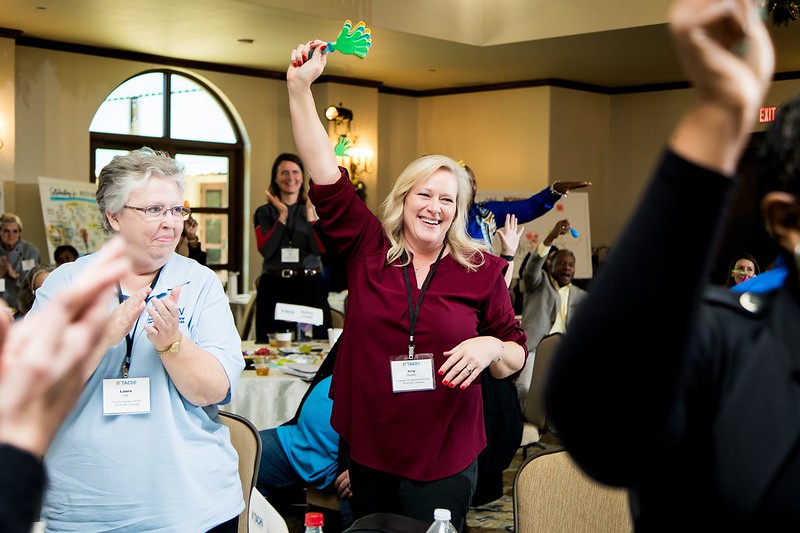
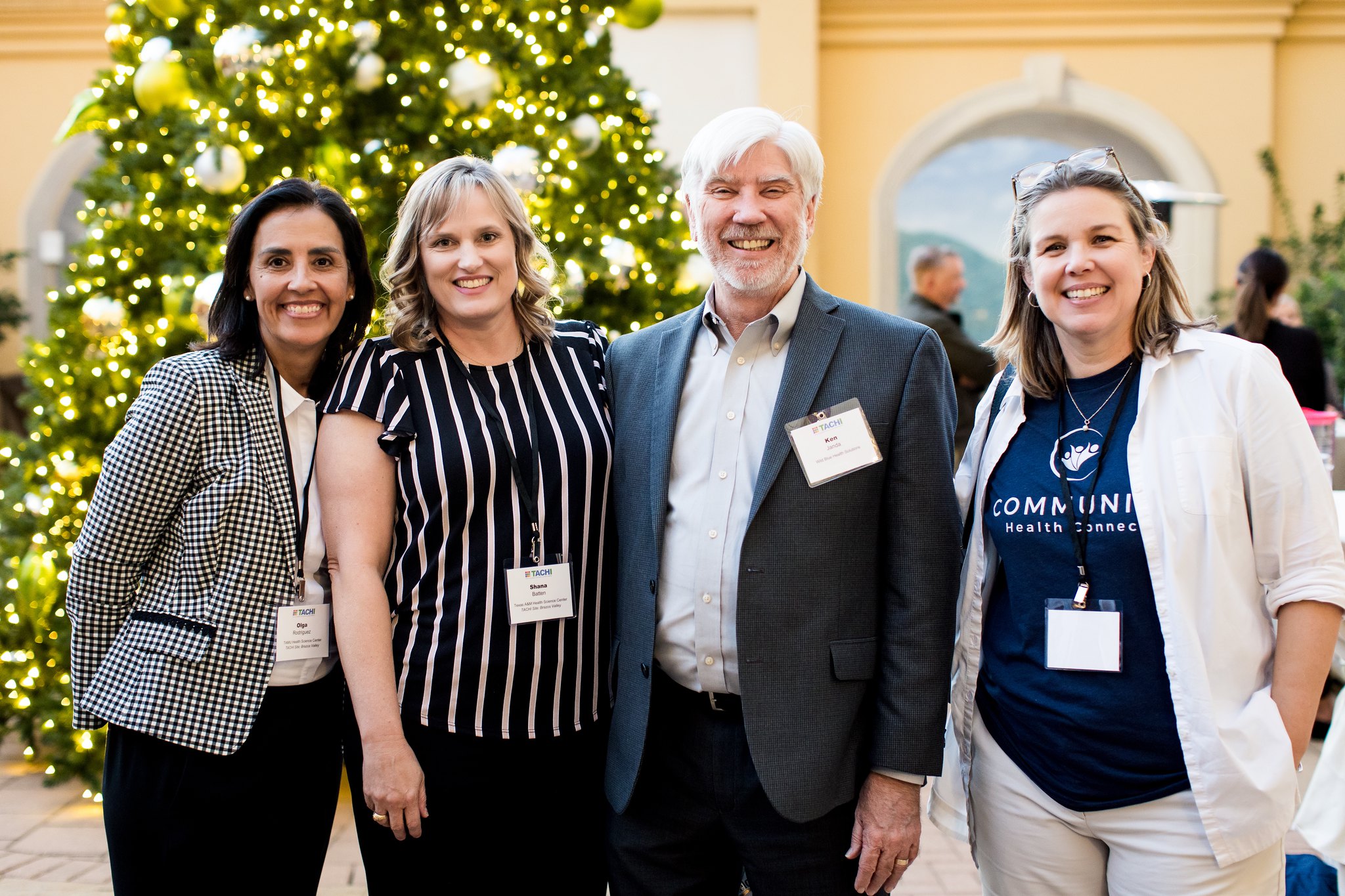

Photo from Day 2 Sustainability Workshop
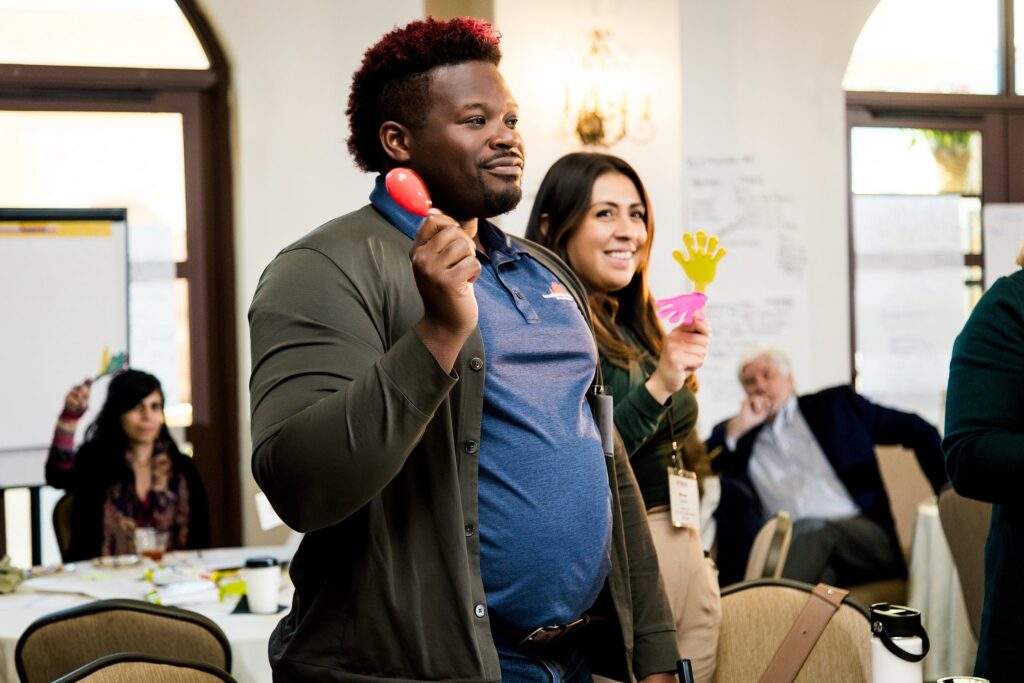
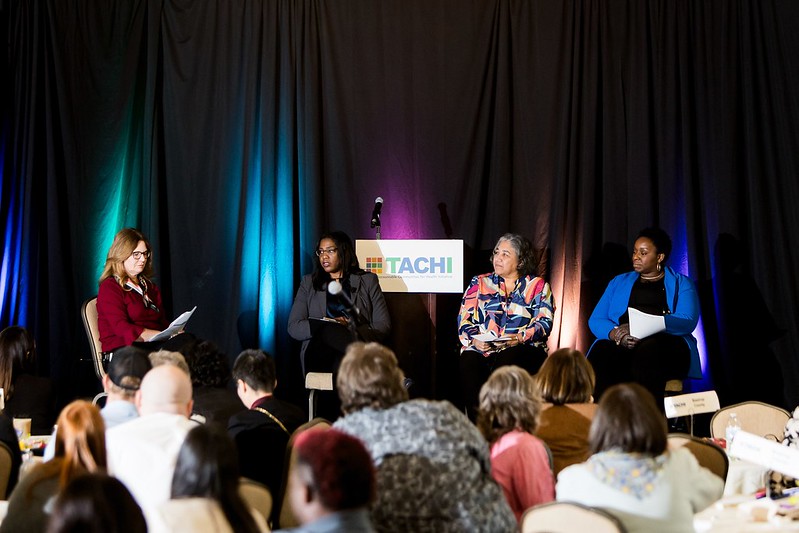
Photo from Practitioner’s Panel

Access Winter Convening Resources Here.